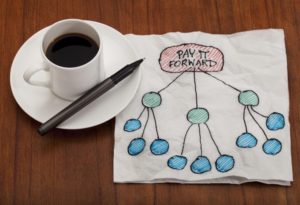

Be Heart Smart
The single best thing you can do for a loved one this Valentine’s Day is to look after your own heart health – and to encourage them to look after theirs. Heart disease is the number one cause of death for both men and women, responsible for about 1 in 4 deaths. Know your family’s heart risk and talk it over with your Doctor. Some groups are more at risk than others: people over the age of 65; African Americans; people suffering from diabetes; people who are overweight; people with high blood pressure; people with a family history of heart problems. To reduce your risk of heart problems, maintain a healthy diet, get regular exercise, quit tobacco and know the signs and symptoms of heart problems.
- Heart failure symptoms: Shortness of breath; Difficulty breathing when lying down; Weight gain with swelling in the legs and ankles from fluid retention; General fatigue and weakness; Frequent cough with frothy sputum; Increased urination at night.
- Heart attack symptoms: Chest discomfort, pain or pressure that persists or repeats; Upper body discomfort or pain in one or both arms, back, neck, jaw or stomach; Shortness of breath; Cold sweats; Nausea; Light-headedness. Call 9-1-1 if you think you’re having a heart attack.
- Stroke Symptoms: Remember “F.A.S.T.” – Face drooping; Arm weakness; Speech difficulty; Time to call 9-1-1.
Login to www.theEAP.com for resources on heart health and wellness, or to learn about many other health conditions. You can also call a Wellness Coach for help with nutrition, diet, fitness or tobacco cessation. 800.252.4555.
Paying it Forward
 A 91-year old Pittsburgh woman went to pay for her groceries only to find that a stranger she had been chatting with had already paid the bill. When the Mr. Rogers film opened at a small Pennsylvania town, one person bought 20 tickets for the next 20 people in line. In December, holiday delivery drivers throughout the country found snacks and treats left for them on home doorsteps. Each of these random acts of kindness were examples of “paying it forward,” a principle in which the beneficiary of a good deed repays the favor to others instead of to the original benefactor, creating a chain of generosity. While kindness is often spontaneous, researchers are finding evidence that it can be taught and that it is contagious. You’ve probably been the recipient of an act of kindness that changed your day, yet been unable to adequately show appreciation for the act. That’s when “paying it forward” comes into play – you repay the kindness by doing something good for someone else. Random acts of kindness are free and open to anyone to perform. There are hundreds of ways that we can improve our daily lives by paying it forward: spend time with an elderly neighbor, bring baked goods into the office to share with colleagues, single out a worker by writing a note to their boss to comment on their good performance. It doesn’t have to be a large, dramatic or a costly gesture – it just has to come from your heart.
A 91-year old Pittsburgh woman went to pay for her groceries only to find that a stranger she had been chatting with had already paid the bill. When the Mr. Rogers film opened at a small Pennsylvania town, one person bought 20 tickets for the next 20 people in line. In December, holiday delivery drivers throughout the country found snacks and treats left for them on home doorsteps. Each of these random acts of kindness were examples of “paying it forward,” a principle in which the beneficiary of a good deed repays the favor to others instead of to the original benefactor, creating a chain of generosity. While kindness is often spontaneous, researchers are finding evidence that it can be taught and that it is contagious. You’ve probably been the recipient of an act of kindness that changed your day, yet been unable to adequately show appreciation for the act. That’s when “paying it forward” comes into play – you repay the kindness by doing something good for someone else. Random acts of kindness are free and open to anyone to perform. There are hundreds of ways that we can improve our daily lives by paying it forward: spend time with an elderly neighbor, bring baked goods into the office to share with colleagues, single out a worker by writing a note to their boss to comment on their good performance. It doesn’t have to be a large, dramatic or a costly gesture – it just has to come from your heart.
Online Training Reminder
Budget Boosters!
Your EAP offers one free in-depth telephonic consultation with an attorney per legal issue. If more help is needed, you may consult these network attorneys at a 25% reduction in published hourly fees. Your EAP also has discounts on a network of financial planners to help you with retirement planning, college funding or other financial concerns. You can also access professional credit counseling and debt restructuring services. Login to www.theEAP.com or give us a call for help accessing these resources.
www.theEAP.com | 800.252.4555
